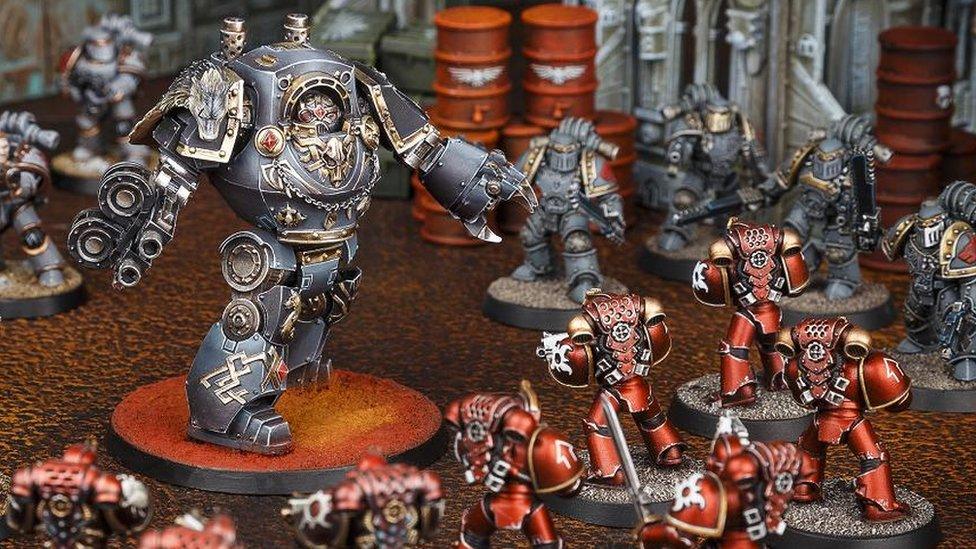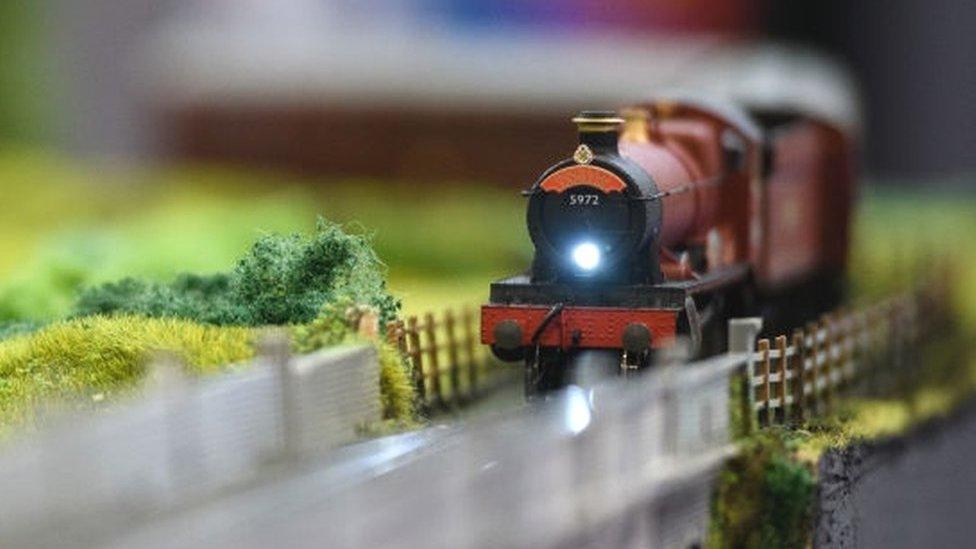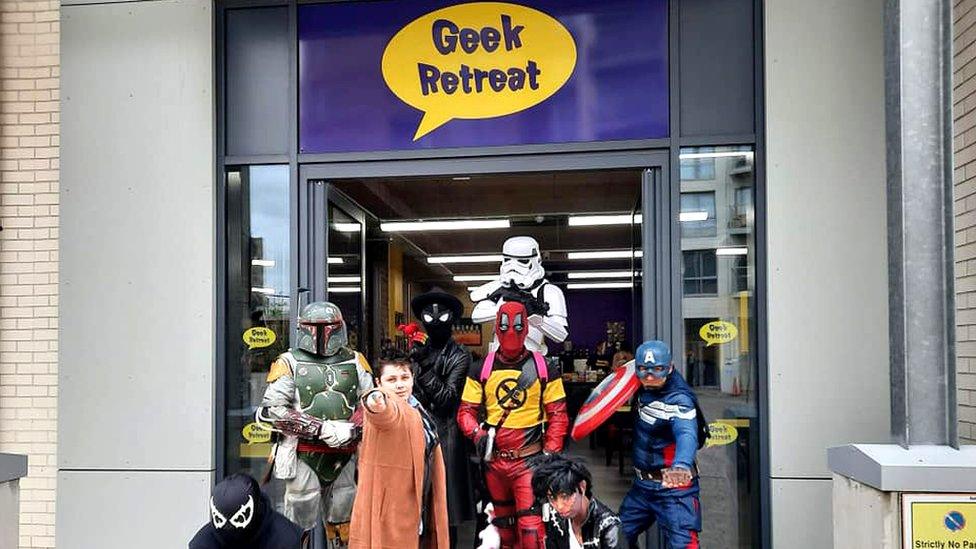Warhammer sales surge for Games Workshop despite shop closures
- Published

Games Workshop sells Warhammer miniatures around the world
Sales of the fantasy role-playing game Warhammer surged in the six months to November as people continued to spend more on their hobbies in lockdown.
Games Workshop, which makes the tabletop miniature game, saw sales hit a record £186.8m in the period, up 26%.
This was despite most of the Nottingham firm's 529 shops being restricted or closed due to Covid rules.
It follows strong performances from other games and hobby firms in lockdown such as model train maker Hornby.
Created in 1983, Warhammer is a fantasy theme game in which players simulate battles between armies using plastic miniatures.
Games Workshop, which sells Warhammer and other miniature wargames around the world, said its online sales were up 90% in May to November while profits increased by a third.
Some 4.7 million people now use the Warhammer community website, it said, an increase of 200,000 on the same period last year.

People play Warhammer competitively
Boss Kevin Rountree said the business continued to build on the "great progress and profitable growth we have been consistently delivering over the last five years".
The FTSE-listed firm has claimed no financial support or subsidies from the government during the pandemic, despite the prolonged closures of its shops.
"I'd like to thank our enthusiastic and loyal fan base who share our love for the Warhammer hobby and the fantastical settings, characters and narratives that make up our intellectual property," Mr Rountree added.
'An escape'
In October, Geek Retreat, which specialises in comics, memorabilia and tabletop games, said it would open another 100 stores in the UK after sales surged in the pandemic.
And Hornby, which also makes Corgi cars and Scalextric racing kits, reported a 33% rise in revenue for the six months to the end of September partly driven by lockdown.
At the time Boss Lyndon Davies told the BBC customers had been seeking comfort from uncertainty in products "they know and love", as well an escape from boredom.
"People want to do things, they don't want to sit there watching the TV for the day," he said.
Related topics
- Published29 October 2020

- Published19 October 2020
